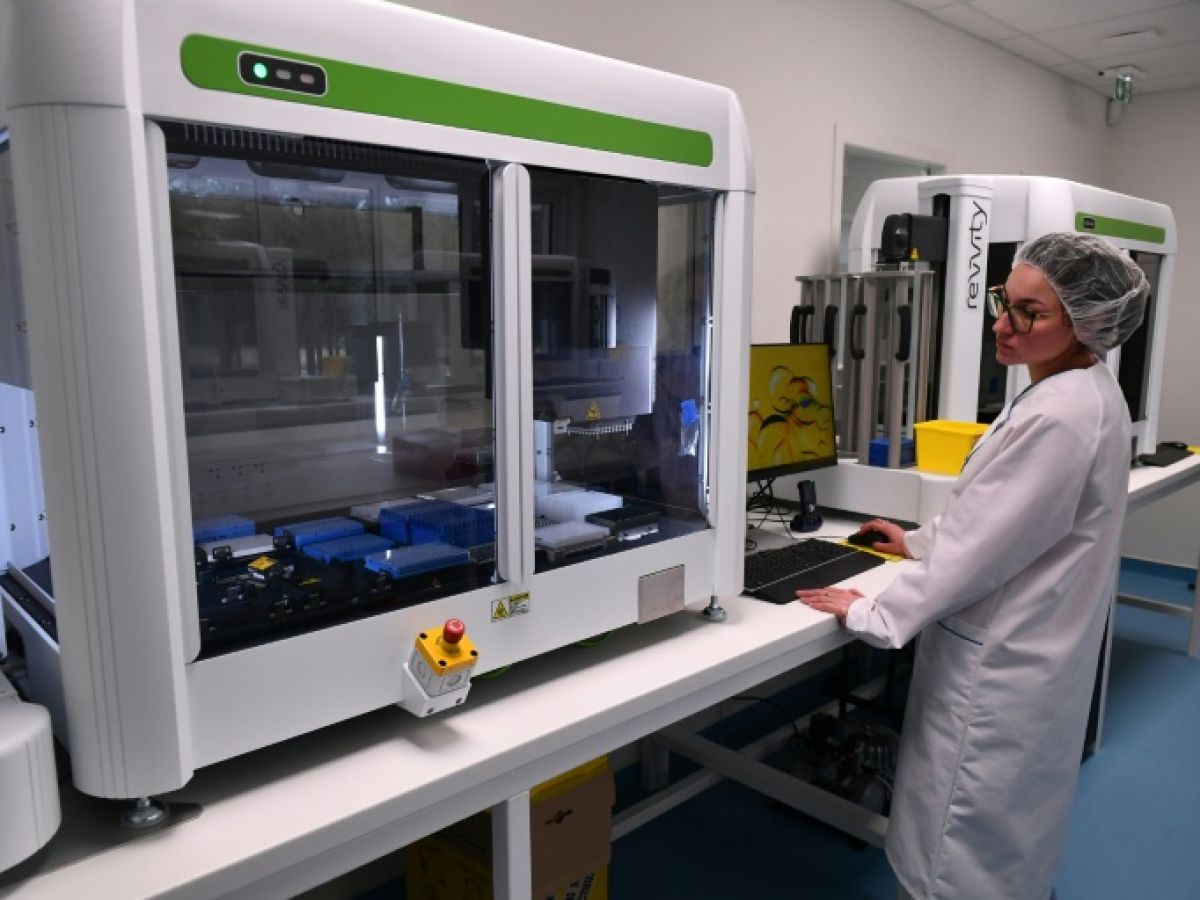Major innovation or exaggerated promise? The French government is massively supporting the start-up Ziwig and its Endotest, which promises to " revolutionize » the diagnosis of endometriosis. Support, including financial support, which raises questions in view of a criticized medical interest.
“ The Ziwig project embodies French excellence in medical innovation", declared the then Minister of Health, Geneviève Darrieussecq, in the fall of 2024. Ministers come and go, but the State's support for the Endotest has remained unwavering since its highly publicized presentation in February 2022.
It's presented as a saliva test that allows for the simple diagnosis of endometriosis using technology based on microRNAs and the use of artificial intelligence. If these promises come to fruition, Ziwig's test will mark a major medical breakthrough: endometriosis affects at least one in ten women of childbearing age and can cause significant pain and a high risk of infertility, with a long medical wait before diagnosis.
The upheaval would also be scientific: the discovery of micro-RNAs in the 1990s may have been rewarded with a Nobel Prize in 2024, but it has never yet given rise to any real pharmaceutical innovation.
Read alsoEndometriosis: soon a blood test to detect the disease without waiting years?
A test reimbursed for many patients
From the presentation of its test, Ziwig, based in Lyon and co-founded by Yahya El Mir and Gilles Doumer, boasted a " revolution » which would allow « early detection of all forms of endometriosis, even the most complex"The government quickly took action. Less than a month later, it was promoting the Endotest during the unveiling of a national strategy for endometriosis. Since then, the test has remained at the heart of the fight against this pathology, from both a symbolic and financial point of view.
Just this spring, Catherine Vautrin, the Minister of Health, visited Ziwig's laboratory in the Landes region. On Ziwig's website, the minister promotes the test, something unusual in the biotech sector. Above all, since this year, the test is reimbursed for many patients : the target set by the health authorities is 25,000 women, which comes at a cost of around 21 million euros for health insurance.
However, the medical interest of the Endotest remains to be demonstrated, estimate researchers interviewed by AFP, for whom the studies published by Ziwig do not yet allow us to conclude on the " revolution » announced.
A " simple starting point“
Ziwig relies on two studies in particular: one published in early 2022 in the Journal of Clinical Medicine, the other a year later in the journal NEJM Evidence. However, the first was "really just a starting point," summarizes British statistician Kevin McConvay, a specialist in the analysis of medical studies, contacted by AFP. Then, the 2023 study allowed "a step forward" but is not enough, according to him, to validate its effectiveness.
Some experts point out the potentially unrepresentative nature of the samples: the conclusions of the first study only concern some 200 patients with strong suspicions of endometriosis, and only in France. Can we generalize a tool that was based on only one population?" asks Bianca Schor, a researcher in artificial intelligence applied to women's health at the University of Amsterdam.
How can reimbursement be possible given these uncertainties? This is the result of a decision made by the French National Authority for Health (HAS). This independent government body, which decides on the merits of reimbursement, has itself highlighted certain limitations of Ziwig's data.
Thus, if it certainly concluded at the end of 2023 that the test demonstrated " validated diagnostic performances", she also felt that an independent study was " necessary to demonstrate clinical utility". The authority therefore recommended a " innovation package", a reimbursement reserved for certain patients even when the data is still insufficient. This framework allows for the necessary research to be completed.
Other hidden tracks
Intended to support innovation, this system has had varying degrees of success. It notably benefited Carmat's artificial heart, a symbol of French innovation in the 2010s, which is now in receivership. Moreover, the HAS framework is far more restrictive than Ziwig's initial promises. Instead of early detection, the test is now only considered after unsuccessful clinical and imaging tests, to avoid surgery.
Some specialists interviewed by AFP are therefore surprised by the discrepancy between public resources provided to biotech, while public laboratories struggle to find funding. While Ziwig's innovation package is expected to ultimately cost around twenty million euros, only 11 million have been released by the State for endometriosis research as part of its women's health research program.
Such an imbalance is harmful, believes Ludivine Doridot, professor at Inserm and one of the coordinators of this research program. This will not help other companies develop technologies that could have a beneficial impact tomorrow." she said, regretting a form of haste and emphasizing that other avenues, such as improving the reading of patients' ultrasounds, would deserve public support.
The Ministry of Health, contacted by AFP, did not respond. Ziwig's president, Mr. El Mir, defended the logic of the innovation package to allow many patients to access its test, and assured the methodological soundness behind it. There is no product on a global scale that has this quality", he insists to AFP, affirming that the samples retained are already sufficient to have strong certainties. The founder also specifies that international scientific journals have been asked to review Ziwig's clinical data but that the process "pgives back time“.
And what do patients think? The patient association EndoMind is campaigning for Endotest coverage to be extended to all patients. But for Arounie Tavenet, a patient and former member of the committee responsible for the national endometriosis strategy, " We could have hoped for accelerated processes for what is presented as a national priority, rather than excessively supporting the evaluation of a saliva test which ethically questions us and which, ultimately, does not represent a major advance for patients.“.

